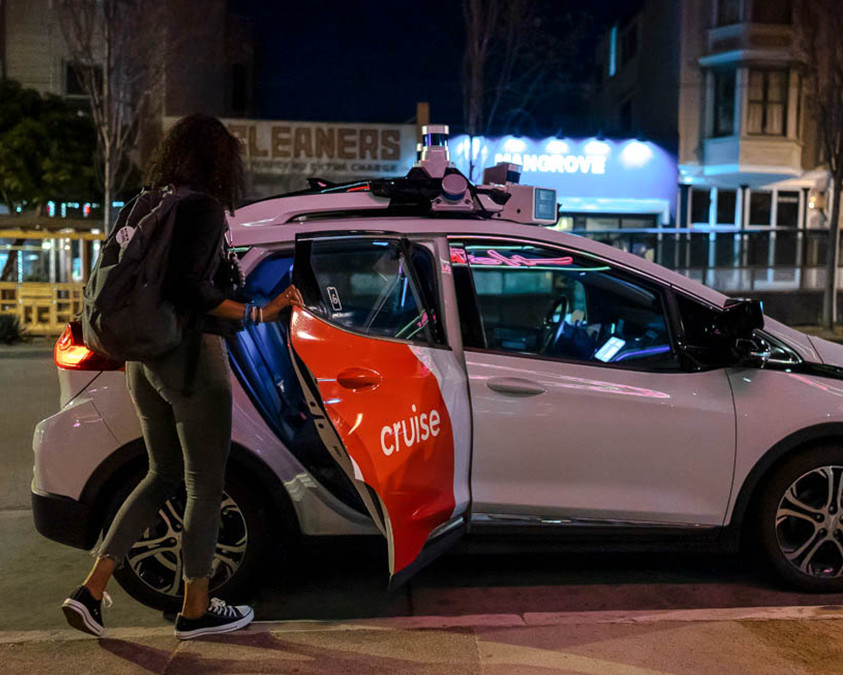I’m genuinely curious to see how this goes.
Cruise, a General Motors autonomous vehicle subsidiary, is bringing its self-driving cars to Houston with the goal of offering driverless rides.
The cars will begin testing next week, said Megan Prichard, Cruise’s vice president of ridehail.
“We designed the technology to launch first in San Francisco with the idea that we would see all sorts of challenges: everything from roller skate parties, to heavy traffic to raccoons in the roads,” Prichard said. “And we thought that if we designed our technology for a dense urban environment, that we would be able to then pick it up and put it into other cities around the country and around the world with only a little bit of fine tuning.”
Initial tests will be supervised drives, with a Cruise employee in the vehicle as a backup safety driver while the vehicle learns about Houston streets. The company did not specify where it would be tested in Houston, and the first drives will be closed to the public. Prichard said there was no timeline for when rides to the public will be offered. The company declined to say how many vehicles it planned to have in Houston.
After launching in San Francisco last year, the company started running its autonomous vehicles — a fleet of Chevrolet Bolt electric vehicles equipped with sensors — in Austin and Phoenix.
Prichard said the company is expanding to Houston because it’s a large and growing metropolitan area.
“The area that we operate (in) will be the area that we determine to be safe, and the hours that we operate will be the hours that we determine to be safe. And then we’ll expand that out over time,” Prichard said.
See here and here for some background. While the Cruise app rolled out in Austin in January, they only began testing the cars on the streets there in March, and that was not yet the public rollout. As such, I have no idea how it’s gone in Austin, so I don’t have any basis for predicting how it might go here. For that matter, and for all the hype about autonomous vehicle delivery services in Houston, I have not seen any reporting on how that’s been received by the public. I haven’t seen any stories of spectacular failures, so that’s a positive sign. I’m still unsure how big the market actually is for any of this. You can specify a driver who doesn’t talk to you when you order an Uber, so how is this any different? Like I said, I don’t know, and I’m looking forward to finding out. Does this appeal to you at all? Leave a comment and let me know. CultureMap, which answers one of my questions by noting that a Cruise ride would be cheaper than an Uber, and Bloomberg have more.


robotaxis are sure to do for traffic what airbnb has done for real estate prices.
defiitely what you need to reduce congestion is to ADD a bunch of empty units to the roads.
Joel, your premise/argument operates on the assumption driverless cars (with no passengers inside) would be just randomly, mindlessly driving the streets all willy nilly like.
“Joel, your premise/argument operates on the assumption driverless cars (with no passengers inside) would be just randomly, mindlessly driving the streets all willy nilly like.”
close (the mindlessness of robots goes without saying), though randomness is not necessary. in fact, if the empty cars are driving around in high ridership areas, where they are most likely to pick up fares, that would be worse than random for the purposes of traffic. this is precisely the same problem already created by “ridesharing” apps, by the way. it is hardly a hypothetical issue.
having said that, when i walk around my neighborhood at night lately, driverless cars driving around randomly is *exactly* what i am seeing.